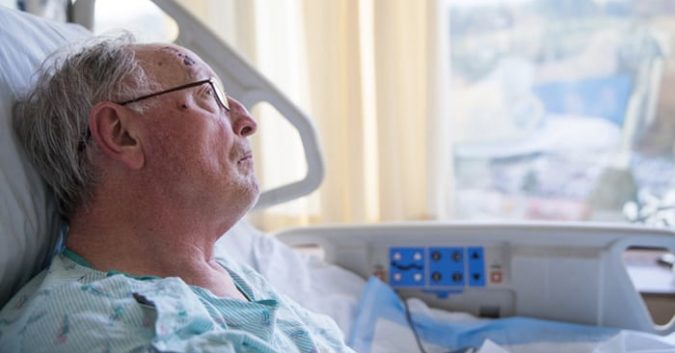There have been several reports over the past few years on nursing home residents improperly being given antipsychotic drugs, a serious form of nursing home abuse. This is not a new story, as nursing homes have used drugs to subdue elderly residents for decades, with serious health consequences. The U.S. Senate issued a report on this type of abuse in 1975, yet these incidents are far from over.
Several drug companies have been found guilty of marketing antipsychotic medications to treat individuals with dementia, which has not been approved by the Food and Drug Administration (FDA). On the contrary, the FDA requires that these drugs include a “black box warning” that indicates they can lead to early death in elderly people. Yet many nursing homes continue to use such drugs on residents with dementia, without permission from family members.
Perhaps this trend is not surprising, considering how often the nursing home industry puts profits before people.
To Comfort or Constrain?
Antipsychotic drugs are generally supposed to be taken by individuals with schizophrenia or a bipolar disorder, but according to a report by Human Rights Watch (HRW) and government estimates, over 179,000 people in nursing homes are given these drugs every week. This statistic was as high as one quarter of nursing home residents in 2012, but has decreased to a still-alarming 1 in 6 residents.
Some nursing home attendants may think these medications help residents with dementia, but they may also feel pressured to give these drugs because there are not enough staff members to care for residents properly. People who have dementia can be aggressive, anxious, and have delusions. While antipsychotics do not help these symptoms, they do make individuals more passive.
Elderly people and their families are supposed to be told when they are being given these drugs, and they have a right to refuse. But nursing homes often ignore that federal guideline, and are not punished even when they are discovered. This lack of consequence has allowed abuse to continue, with devastating results.
The Serious Side Effects and Social Costs of Antipsychotics
Medicare and Medicaid have rules against using antipsychotic drugs on patients with Alzheimer’s and dementia, due to their life-threatening side effects. Persons taking these medications can fall more easily, have low blood pressure, develop diabetes due to high blood sugar, have blood clots that lead to a stroke, or suffer a heart attack.
The social toll of these drugs on nursing home residents and their families is equally tragic. Family members find their elderly loved ones too sleepy to respond, and individuals taking the drugs report that they cannot stay awake or speak clearly. These medications also make it difficult for individuals to groom themselves, take a bath, eat independently, or chat with others, greatly reducing their quality of life.
Still, even if adult children do not want their parents to be given these drugs, they worry that if they do not give permission, they could be forced to find a new home for their loved one. This problem is compounded by the fact that over half of those who live in nursing homes have dementia, and these numbers will only rise. There may be as many as 16 million people with Alzheimer’s Disease by the year 2050, making it crucial to find a solution to the over-medication problem.
Seeking a Cure for a Broken System
The federal government started a program in 2012 to reduce the use of antipsychotic drugs in nursing homes. While there was a decrease in prescriptions after those measures were put into place, nursing homes discovered giving patients these drugs have only been fined 2 percent of the time.
Other evidence suggests the drop in antipsychotic drug use may be too good to be true, since more nursing home residents have been diagnosed with schizophrenia. This disease usually appears before age 30. Nursing homes may also be using other harmful drugs to make patients more passive.
Legal battles have been a catalyst for some change, such as a class action lawsuit against a hospital in California that was settled in 2014. As the case worked its way through the courts, there was a drop in antipsychotic drug use in California nursing homes of 6.3 percent, and a drop of 4.6 percent across the nation. When nursing homes realize there could be financial repercussions for abuse, we may begin to see more action.
While nursing homes have fought against minimum staffing levels, that may be the only way to solve this problem. Nursing home aides need better support to care for residents, and engage people who have dementia. Through music, art therapy, and other activities, residents can be occupied and constructive. It is only by giving more personal care, and putting profits before people, that we can end the abuse.
